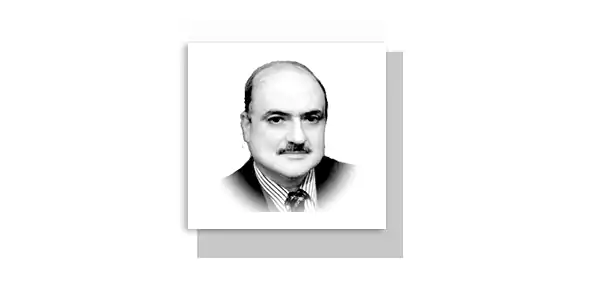One visible by-product of the late developments on the political front (the upheaval et al) is that the lovers of ‘democracy’ are all floundering around like a bunch of headless chickens. Come to think of it, for this privileged class much more than the future of democracy is at stake. Add this to the hullabaloo related to the pandemic and you have a mixture too thick to assimilate.
We, in the Land of the Pure, are known for making mountains out of molehills. Give us a ‘cause’ and we are bound to blow it up to unrecognisable girths. Democracy is one such ‘cause’ of late. Switch on the TV and, like as not, you will confront a pundit singing the praises of ‘democracy’. One side of the political spectrum has progressed from calling democracy ‘the best revenge’ to democracy being the end all, be all, of every worthy cause. The other extreme, political chasm notwithstanding, constantly talk of ‘not derailing the system’. Caught in the middle of this pincer situation is the proverbial man in the street who continues to look askance at every form of government. His main concern, i.e. to keep body and soul together, is still to be addressed. But then his feeble voice is drowned out by the ever rising clamor in favour of democracy.
n effect, democracy is today a big thing; the thing to cherish and to propagate. By that token, any action by the ‘baddies’ is instantly projected as “an attack on democracy” and roundly condemned; and woe unto people who are on the receiving end! We have reached an impasse where democracy is being equated with not just good governance but the very State per se. What is, or at least should be, the means to an end is being erroneously presented as an end in itself. As Americans would say, it is either democracy or bust.
It is a different matter altogether what democracy of our brand brings in its wake. Examples abound. It is some time ago but the frightful upheaval in occupied Palestine after the election – and that in a free and fair election a la western prototype of democracy – is just one instance of democracy gone awry. Or take former US President George W. Bush’s resolve to thrust democracy down the Iraqis’ throat. One may well be justified in asking the fans of the ‘liberal’ West: either accept democracy, warts and all, or stop thrusting it on one and all. You cannot have it both ways. The western concept of democracy, it would appear, is founded on what can only be characterized as double standards.
Our own horde of liberal intellectuals has been weaned on Western propaganda. ‘Democracy’, by that token, is bound to figure among the de rigueur words in their lexicon. In their estimation, any person wishing to be counted among those fit to be counted must needs be an admirer of the Western type of democracy, or else. There are no ifs and buts about it. It matters not the least whether or not the person in question has the slightest inkling of what democracy connotes or what, if anything, it is made up of. Democracy, in a word, is ‘in’. What is the common man to make of democracy, then? It would be pointless to go to the good old dictionary for a definition, since that would be banal in the extreme. Everyone knows how the dictionary would define it: something akin to Lincoln’s well-known description of it as “government of the people, by the people, for the people”. All this, though, is easier said than done. Defining is the easy part; transplanting the definition on to the field – and a field as slippery as that of the Land of the Pure – is something else.
Perhaps the most apt definition came from the pen of philosopher poet Muhammad Iqbal who defined democracy as a form of government based on the premise that “people are to be counted rather than appraised”. The stress in the so-called democratic approach to government, in other words, is on quantity rather than quality.
The detractors often deride democracy as ‘tyranny of the majority’. Yet it can also happen that a veritable minority can actually triumph in a democratic dispensatio. The Westminster type of democracy – so dear to our liberals – has peculiarities all its own.
The ‘first-past-the-post’ concept is, at best, deeply flawed. If one does one’s sums diligently, it would not be far to seek that this system almost never ensures that the winning party would be the one that polled the most votes. As a matter of fact, it often happens for a party to winning an overwhelming majority of the popular vote to end up with a minority of members in parliament! These deviations are enough to shake the purist’s faith in democratic institutions, such as they are.
Democracy is at best an over-rated system of government. Hullabaloo about the ‘virtues’ of democracy appears to have been blown out of all proportion. The Western propaganda notwithstanding, there is hardly any doubt that a system of government can be only as good, or as bad, as those administering it. Come to think of it, what really matters in the long run is how well a people are governed. It is governance and the welfare of the common man that deserves top billing, rather than merely the form of government. Good governance, then, is what is – or at least should be – the ultimate touchstone, rather than the form. As for the present situation in this blessed land, it can only be for the better. For a society at the rock bottom, the only direction to go is up! Or is that being over-optimistic?
— The writer is a former Ambassador and former Assistant Secretary General of OIC.
Email: binwakeel@yahoo.com










